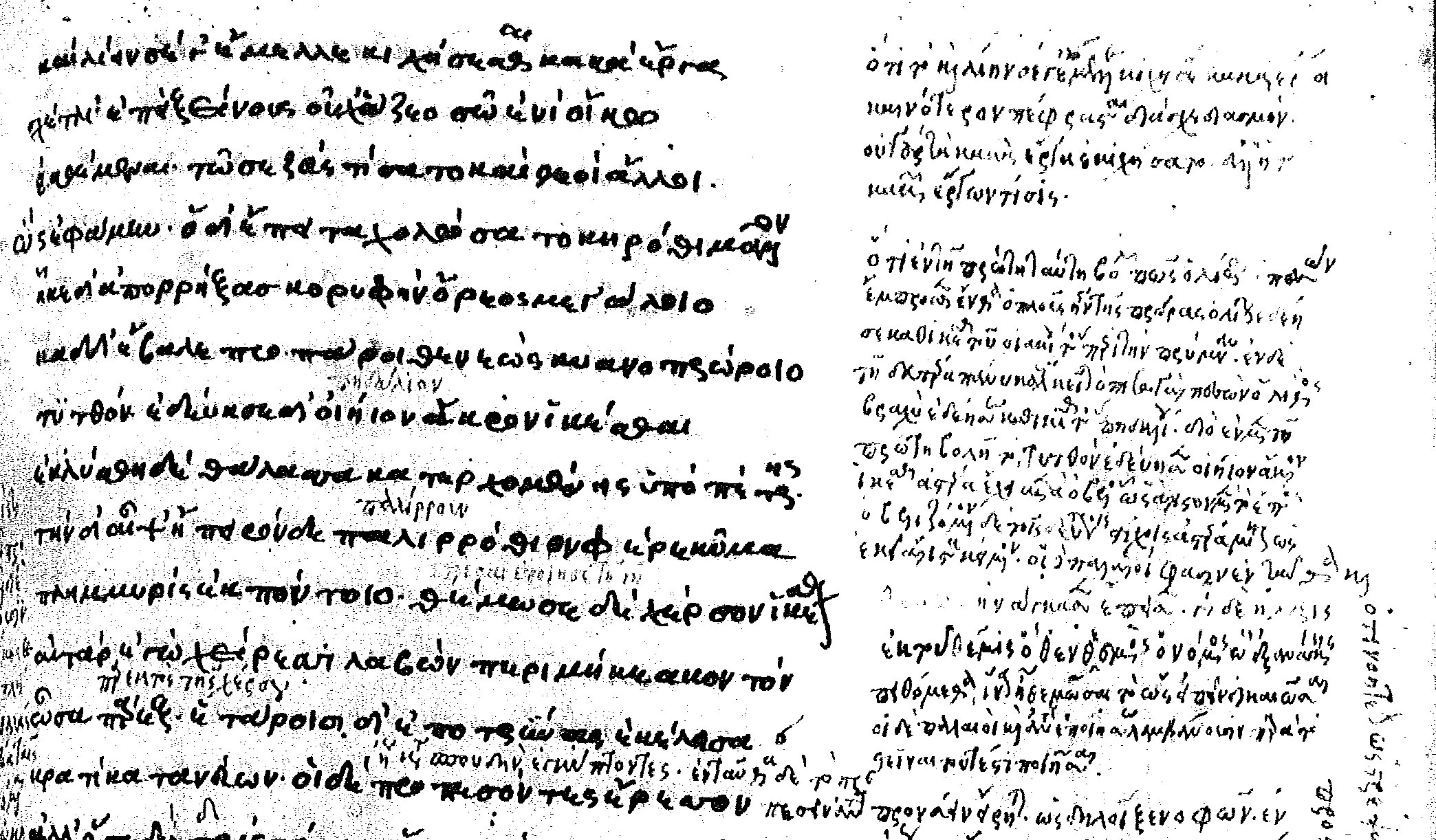Last December, Esperança Ramírez, our facility secretary, defended her PhD Thesis entitled: “Edició crítica dels escolis al cant IX de l’Odissea” (Critical Edition of the Scholia to the Odyssey Book IX). The thesis defense took place at 11am on Friday 16 December in the Facultat de Filosofia i Lletres of Universitat Autònoma de Barcelona.
Scholia (singular scholium or scholion, from Ancient Greek: σχόλιον, “comment, interpretation”) are grammatical, critical, or explanatory comments, either original or extracted from pre-existing commentaries, which are inserted on the margin of the manuscript of an ancient author, as glosses.
Scholia definition in the Wikipedia
In her doctoral dissertation she does a thorough, critical and updated edition of the scholia to the Odyssey Book IX, including the scholia regarded as minor as well as the major scholia. This book and the following three books are collectively referred to as the apologoi: Odysseus’ “stories”, and they have attracted the attention of scholars of Homer works of all times.
To carry out her research work, she had to systematically analyse and challenge previous editions that, in full or in part, included scholia from the Odyssey Book IX, and, on the other hand, she had to decide the corpus of manuscripts that she would study, which was finally set to 37 from different typologies and genetic filiations.

It stands out the methodological novelty of classifying the scholia according to their content: related to the titles, dedicated to argument summaries, focused on lexicographic aspects, contextual or mythographic. This classification, on top of helping to understand the content of each scholium, offers too an interesting view of the filiation of manuscripts.
Her goal was to offer a body of data encompassing the scholia, the annotations and also the most significant corrections of the Homeric text. In that corpus there are several types of content, from multiple versions of myths to words that must be construed, including syntactic expressions or morphological annotations.
The thesis is available for download from TESEO, the official repository of Spanish doctoral dissertations.
A translation of the Odyssey to English by A.T. Murray (1919) can be read on-line at the Classical Texts Library and another translation by Samuel Butler at The Internet Classics Archive. Also, if you are curious, you can hear how Homer’s Odyssey sounded in the original ancient greek, and if you dare so, you can take a free 64-lessons course to learn ancient greek.